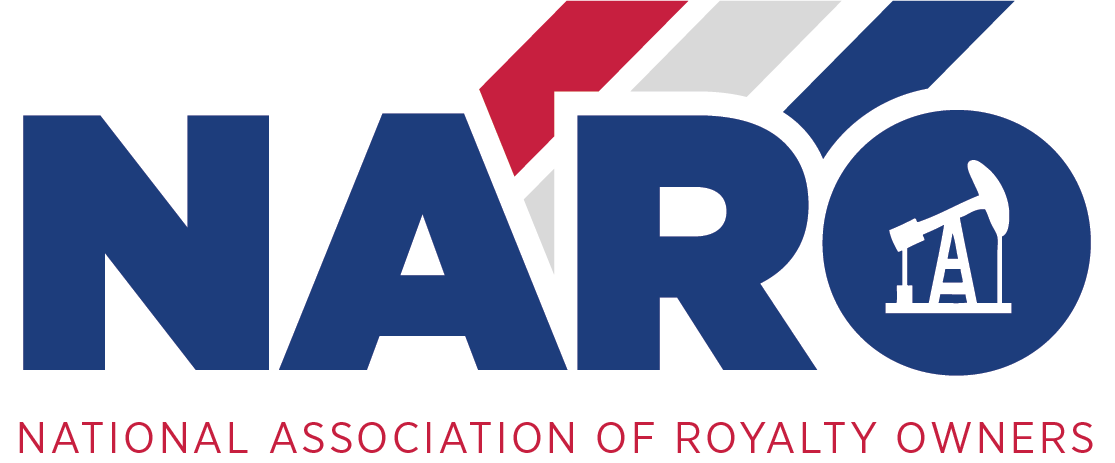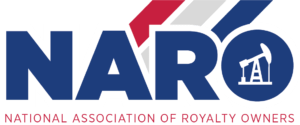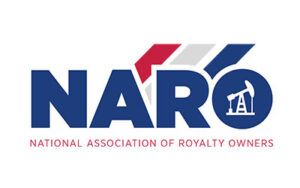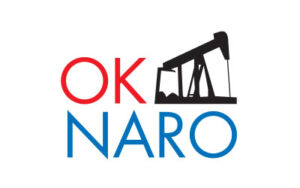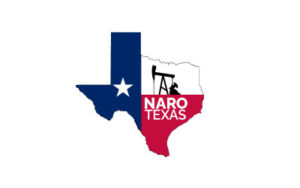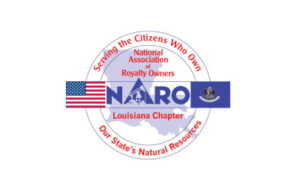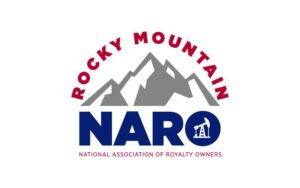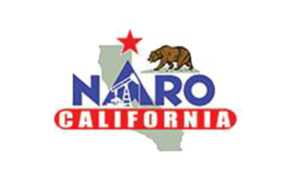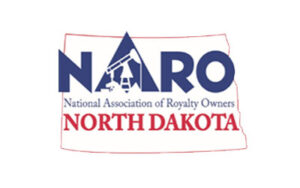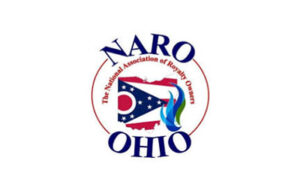All chapters provide education, political action and state conventions that bring together friends and neighbors from across the nation to keep them informed and working together on issue of importance to their property.

How We Help Oil & Gas Mineral & Royalty Owners
NARO is the only national organization representing the interest of oil & gas royalty owners. It is a place where you can learn how to manage your minerals like a pro, connect with industry experts, meet other mineral owners in your area, and have your interest represented on both the state and national level.
Open To All
State & National Conventions
NARO conventions provide unique learning opprotunities for members and non-members alike. From Mineral Management 101 to Legislative Updates, these events offer something for all mineral owners.
Open To All
Local Events & Town Hall Meetings
Our chapters host local and regional events to help you connect and foster relationships with other mineral owners and professionals. These events help you stay on top of the latest education and policy issues.
Member Exclusive
Free Exclusive Webinars
All membership levels except our Introductory membership enjoy free access to live webinars as well as access to our extensive library of past webinars that are available to watch on-demand.
Webinar: How To Read & Manage Your Royalty Statement
Member Exclusive
Monthly Newsletter
The Royalty Owners Actions Report (ROAR) is NARO’s monthly publication to keep members abreast of legislative issues, Chapter Events, guidance for mineral owners and state Chapter issues.
Member Exclusive
Discount On NARO Foundation Educational Publications
The NARO Foundation Library offers a myriad of publications to assist Mineral & Royalty Owners
Member Exclusive
Look Before You Lease, J. Stafford
Basics of leasing from the small mineral owner’s perspecitve, by former NARO Chairman, and founder Jim Stafford.
Member Exclusive
Legislative Calls-To-Action
Our voices are louder as a group. Get timely Calls-To-Action to contact your national or state legislators to ensure your voice is heard on important matters.
Member Exclusive
Mineral Rights Forum
Enjoy access to a special forum for NARO members to discuss mineral rights.
Have Questions? Not Sure What Membership Is Right For You?
NARO National Leadership

Matt Sands, NARO National President
I was introduced to oil and gas at a young age when I learned that my grandmother owned minerals in Wyoming inherited from her father who homesteaded land in the late 1800’s. Little did I know that things would come full circle and I would make a career out of managing these types of oil & gas interests.
I started working in the oil & gas industry in 1999, working for Shell Exploration & Production Company in various engineering, planning, and leadership roles. In 2015, I founded a company focused on providing consulting, valuation, and advisory services for mineral and royalty owners and investors. And while it may not be obvious, even though I had worked in the industry up until that point, I still had a lot to learn about the mineral and royalty side of the business. What started as a personal journey to learn more (and share my knowledge with other mineral and royalty owners) through my podcast and website, turned into a mission to serve other mineral and royalty owners.
I was introduced to NARO in 2019 and I was soon asked to join the Colorado Chapter’s (now the Rocky Mountain Chapter) board of directors. I’ve been involved with the organization since then and have met some amazing members and volunteers who tirelessly give their time and talent to progress our mission of supporting, advocating for, and educating mineral and royalty owners across the United States.
One of the biggest lessons that I’ve learned over the years is that knowledge is power. While there are a lot of good people who work in the industry, there are also those looking to take advantage of unsuspecting mineral owners. Only you can arm yourself with the knowledge and resources to make the most of the mineral and royalty interests entrusted to your care. A NARO membership can make the difference between protecting and maximizing the value of your assets or losing out on significant value or the opportunity to protect your rights.
Check out our webinars, in-person events, and conventions where you can network with other mineral owners and get your questions answered. Or, take your education to the next level with our Mineral Management Program. Come see for yourself what we are all about!

Jon Corkern, NARO National Executive Director
Jon earned his degree in Forestry from Louisiana Tech University. He began his career as a Park Naturalist educating visitors of the local fauna & flora of Northwest Louisiana. He often would collaborate as a Park Naturalist with the local Boy Scout Council, which led to him being offered a position with Boy Scouts of America.
Jon spent 16 years with the Boy Scouts of America where he developed a strong background in membership and development. During his tenure with the Boy Scouts, he was honored to receive several career advancements, as well as recognition for membership and development. Though grateful for these recognitions, his most cherished memories while working for the BSA were serving as Summer Camp Director for 6 years and receiving the Vigil Honor Award.
After leaving the Boy Scouts, Jon then began serving as Membership and Development Director for the American Rose Society, where he served two years in this position. Because of his success in this position, he was later promoted to Executive Director of the American Rose Society. While serving as Executive Director, he oversaw the Great Garden Restoration capital campaign which raised over $2 million dollars of capital improvements to the Gardens of the American Rose Center. Jon is also proud of his family. He is married to the beautiful Mrs. Shelly Corkern; they have one son, Andrew Stroud. Jon is very excited to join the NARO team and looks forward to being a part of its prosperous future!
Frequently Asked Questions
Which States Have NARO Chapters?
NARO currently has chapters in the following states:
- Appalachia
- Arkansas
- California
- Colorado
- Louisiana
- North Dakota
- Ohio
- Oklahoma
- Pennsylvania
- Rocky Mountain (Utah, New Mexico, Montana, Wyoming)
- Texas
What Is A Mineral Owner?
A Mineral Owner is an individual who owns the minerals underground and is entitled to receive monthly or annual royalty income from operators producing crude oil and natural gas, not to be confused with the “Surface” property.
A mineral interest is a property interest that is created when the minerals, such as hydrocarbons, are separated from the surface by a mineral deed or an oil and gas lease. While the surface owner can also own the minerals, it is common that in past sales of the surface, the seller reserved the mineral rights and kept them. However, since these owners do not have expertise of exploring minerals themselves, they can lease their mineral ownership rights to oil operators (oil companies).
What Is Mineral Interest?
A mineral interest is a property interest that is created when the minerals, such as hydrocarbons, are separated from the surface by a mineral deed or an oil and gas lease. While the surface owner can also own the minerals, it is common that in past sales of the surface, the seller reserved the mineral rights and kept them. However, since these owners do not have expertise of exploring minerals themselves, they can lease their mineral ownership rights to oil operators (oil companies).
What Is An Oil & Gas Lease?
An Oil and Gas Lease is an agreement between two parties (the mineral owner and an oil and gas operator) to allow oil and gas exploration. The lease allows the crew and drilling equipment to access the property and minerals which the Lessor owns. Most oil and gas leases are for a specific period of time, e.g. three years, but if a well gets drilled before the lease expires, the lease usually lasts for as long as the well is producing.
What Is A Division Order?
A Division Order is a document which lays out the proportional ownership in produced hydrocarbons, including crude oil, natural gas, and NGL’s (mineral property). Sometimes the Division Order is referred to as a division of interest. More often than not, a single well or lease will have multiple owners.
The division order is sent from the operating company to the mineral owner. The company will request the mineral owner sign the Division Order and return it. In Texas a signed Division Order is required before the company can issue royalty payment. If you have a Division Order, even an old one, it will be useful in knowing what you own. If you are sent a Division Order to be signed KEEP A COPY of what you send them for your records.
What Is A Mineral Deed?
A mineral deed is like a surface deed, and is the way mineral properties are sold. It shows who sold and bought the minerals and on what terms. A mineral deed is different from a mineral lease, in which a lessee has to engage in development activities and production of oil and gas has to start during the lease period. Deeds are written many different ways.
Mineral deeds are public documents available in the courthouse in the county where the minerals are located. —Check online to see if your courthouse in that county has online documents. If they don’t, call the court clerk for information on how you can get a copy of your paperwork.
Where Can I Find My Oil & Gas Lease?
Mineral leases are agreements between mineral owners and others that provide authorization to look for and remove minerals from specified sections of land.
A copy of the lease may have been filed in the courthouse in the county where the minerals are located. Check online to see if that county has online documents. If they don’t, call the court clerk for information on how you can get a copy of your lease. However, in many cases a full copy of the lease is not filed with the courthouse. Only a summary or “Memorandum” of the lease was filed. In that case, you will need to contact the operator who currently owns the lease to obtain a copy.
Managing Your Minerals
Can My Lease Be Sold Without My Permission?
It is very common that leases are sold from company to company. Unless your lease restricted the ability of the lessee to sell it, it can usually be sold without your permission. The new owner of your lease should notify you they are your new operator, and will send you paperwork to get you in their accounting system to be paid. If you think your lease was sold or your operator was acquired look at the National Association of Division Order Analysts (NADOA) book of mergers and acquisitions for owner relations contact information.
How Do I Sell My Minerals?
Selling your minerals is a personal decision. While we generally advocate for mineral owners to hold on to their property to enjoy the benefits of future royalty payments, we understand there may be times where you need to sell some or all of your interests.
Whatever your decision, be sure to find out if any oil and gas activity is occurring near or on your interests. Many mineral owners who accept unsolicited purchase offers don’t realize that the reason that the buyer is contacting you is because a well is about to be drilled.
Even if you are planning on selling you interests, an investment in a NARO membership and the information you will learn, could return a higher purchase price.
What If My Lease Terms Are Being Violated By The Operating Company?
An oil and gas lease is a private business contract. If you feel the company you have contracted with has violated the terms of this agreement, your recourse is through the legal channels. The state regulating agency, the local police, related associations (like NADOA, AAPL, OGCC etc) cannot generally help, and you will need to consult an oil and gas attorney.
What If I Can't Get My Operator To Call Me Back?
This can be very frustrating. If you are having trouble getting a reply, send your request in writing, via certified mail. Also look for the “Owner Relations” page (or similar) on the operator’s website for email and other contact information. Many operators try to funnel owner contacts through email only.
State Regulatory Agencies
How Do State Regulatory Agencies Serve Mineral Owners?
State regulatory agencies serve their citizens via:
- Stewardship of natural resources and the environment;
- Setting standards for personal and community safety;
- Support of development and economic vitality for the benefit of their citizens; and
- Regulating when, where and how wells can be drilled and oil and gas purchased.
What Do State Regulatory Agencies NOT Do For Mineral Owners?
State regulatory agencies usually do not:
- Fight private legal battles or contact operators on behalf of mineral owners
- Keep deeds, leases or other such documents (Those can be found in the courthouse where your document was filed.)
- Get involved in issues with your royalty payment.
